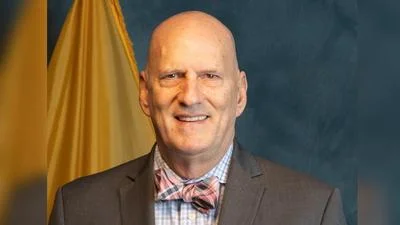Louis Cappelli, Jr. Commissioner Director | Official website
Louis Cappelli, Jr. Commissioner Director | Official website
Congressman Donald Norcross, along with a panel of stakeholders, convened in Camden to address the pressing issue of combating the opioid epidemic and discuss the Modernizing Opioid Treatment Access Act (MOTAA).
During the roundtable discussion, Commissioner Director Louis Cappelli Jr. emphasized the importance of the legislation, stating, “This piece of legislation is removing barriers for people to access the treatment they need." He highlighted the significant impact that medically assisted treatment can have on individuals struggling with substance use disorder.
Introduced by Congressman Norcross, Senator Ed Markey, and Congressman Don Bacon, MOTAA aims to reform outdated regulations surrounding the prescription and dispensing of methadone, with the goal of increasing access to care for individuals experiencing opioid use disorder. Congressman Norcross underlined the urgency of the matter, stating, “Every life lost is not just a number or statistic, these are our neighbors, and we must do more to combat and end the opioid epidemic.”
New Jersey Health Commissioner Dr. Kaitlan Baston also shared her perspective on the opioid crisis, stating, “Finding innovative treatment solutions is about saving lives. It is also about bringing people who are struggling in the shadows into the light and treating them with dignity."
Gabriel Rodriguez, chief of the Camden County Police Department, emphasized the importance of medically assisted treatment, saying, “Allowing more access to these critically important medications, we are in turn making our communities safer and healthier.”
The Modernizing Opioid Treatment Access Act (MOTAA) is supported by various organizations, including the Camden County Addiction Awareness Task Force, the New Jersey Hospital Association, American Society of Addiction Medicine (ASAM), American College of Academic Addiction Medicine (ACAAM), and the National Safety Council.
The discussion highlighted the need for comprehensive and accessible treatment solutions to address the devastating impact of the opioid epidemic. The collaborative efforts of stakeholders at the roundtable signify a step towards improving access to care and ultimately saving lives in the fight against opioid addiction.






 Alerts Sign-up
Alerts Sign-up